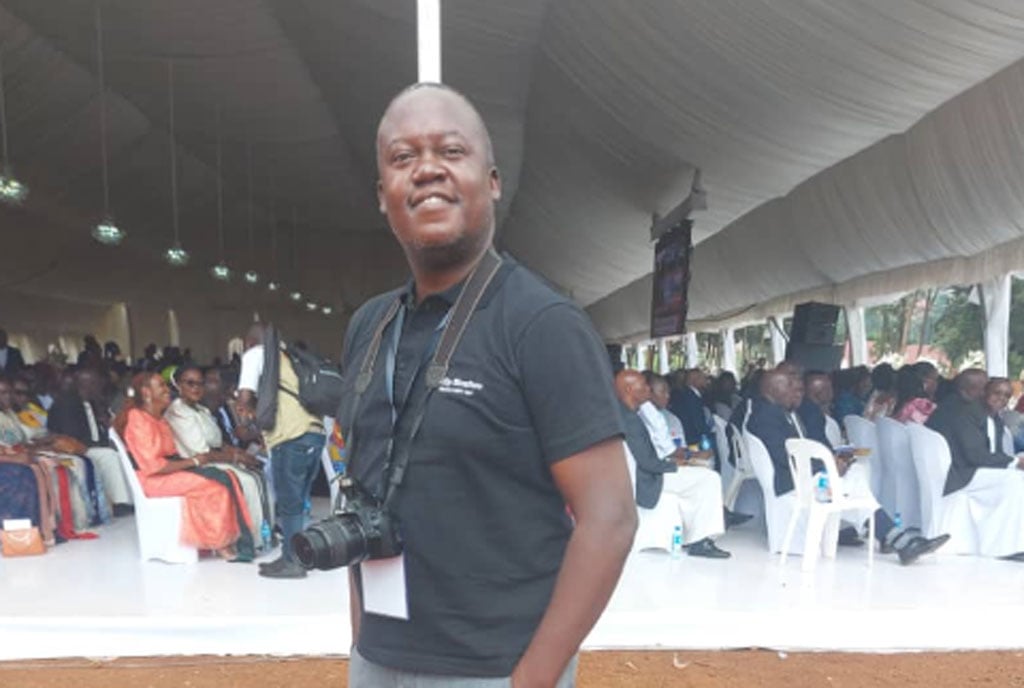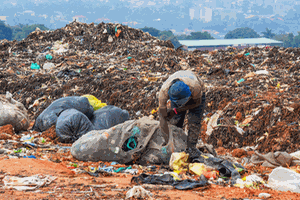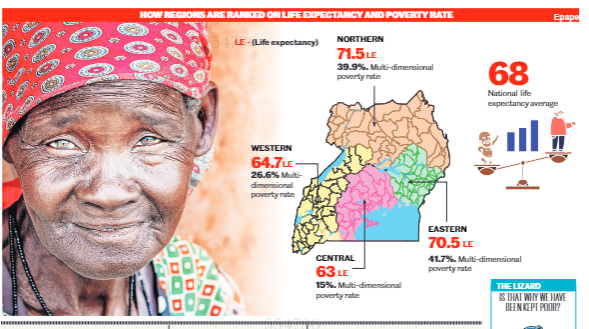New approach gives hope to cancer patients in Busoga

Ms Irene Naleba, a palliative care clinical officer at Rays of Hope Hospice Jinja (Left) interacts with breast cancer patient Namukose Faridah* (not real names) in Iganga District, June 2024. PHOTO/PHILIP WAFULA
What you need to know:
At least 680 patients have been enrolled in palliative care by Rays of Hope Hospice Jinja (RHHJ), the only specialized palliative care provider in the Busoga Sub-region and parts of Buganda, according to the organization’s Monitoring and Evaluation/Quality Assurance Officer, Mr John Mwayi
A new approach has been adopted to address the full spectrum of needs for both palliative care patients and their families in the Busoga Sub-region. Palliative care provides holistic relief from symptoms and stress of serious life-limiting illnesses, aiming to enhance the quality of life for both patients and their families. It begins at diagnosis and continues throughout the illness.
At least 680 patients have been enrolled in palliative care by Rays of Hope Hospice Jinja (RHHJ), the only specialized palliative care provider in the Busoga Sub-region and parts of Buganda, according to the organization’s Monitoring and Evaluation/Quality Assurance Officer, Mr John Mwayi.
“As of May 2024, Jinja had 134 patients, Kamuli 99, Buyende 81, Namutumba 49, Mayuge 44, Namayingo 40, Iganga 37, Luuka 35, Kaliro 28, Bugiri 25, Bugweri 15; while Kayunga had 44, Buikwe 47, and Busia 2,” he said on Tuesday.
New Approach
Dr Margrethe Juncker, who has worked with RHHJ since October 2015, said that prior to 2016, the organization mainly focused on physical pain relief and symptom control. However, given that they primarily work with impoverished populations, they have now developed a more comprehensive program to address the broader needs of the sick.
This includes raising awareness, training health workers in basic palliative care, and educating the community through radio programs and outreach initiatives.
For their economically disadvantaged clients, Dr Juncker said they provide monthly support with food packets, bedding, mattresses, reusable diapers, and colostomy bags to ensure that patients live their remaining days free of pain and with dignity.
According to Dr Juncker, RHHJ, founded in 2005, strives to reach patients before they have suffered significantly and while treatment is still possible.
“In 2022, RHHJ started a field office in Buyende District, which now has 25 percent of our patients. We will soon open a field office in Namayingo District to cover Mayuge, Namayingo, Bugiri, and Busia districts,” she added.
Dr Juncker also noted that cervical and breast cancers can be prevented with HPV vaccination and treated if diagnosed early. Since 2018, RHHJ has screened over 10,000 women for cervical cancer using the VIA method.
The Executive Director of RHHJ, Ms. Sylvia Nakami, explained that for the sixth year in a row, they will arrange a ‘Fight Women’s Cancer Event’ in October, where information about breast and cervical cancer is disseminated throughout the month. The event will culminate with a run, walk, and ride event, expected to gather over 1,200 participants.
Ms Nakami said RHHJ has been engaging local organizations, businesses, and educational institutions to participate, and this year, they plan to involve the entire country.
She mentioned that many patients who have benefited from their program have become advocates to dispel the fear that cancer is a death sentence. These include Namukose Faridah* (not her real name), a resident of Iganga District, who was enrolled in palliative care after being diagnosed with breast cancer.
Ms Namukose said she felt a “small painless lump” in her breast, and a biopsy revealed she had breast cancer. Although it could have been treated if detected early, she did not have the funds for further tests and treatment.
“The RHHJ team issued me a ‘treatment card,’ which means that RHHJ is billed and will cover test and treatment expenses. Because of the card, I don’t have to buy medicine at Mulago Hospital,” she said.
Ms Aidah Nansubuga (not her real name), a resident of Luuka District, told this publication that she was diagnosed with cancer of the vulva in May.
“I went to the Uganda Cancer Institute (UCI) and was told that the disease was advanced and was asked to go back home,” said Ms. Nansubuga, who is now enrolled in palliative care at RHHJ.
Ms Irene Naleba, a palliative care clinical officer at RHHJ, said the right diagnosis for Nansubuga was made late; however, at an early stage, it is treatable. “Thankfully, Nansubuga is now with RHHJ, and we shall help her with the care she needs,” she said.





